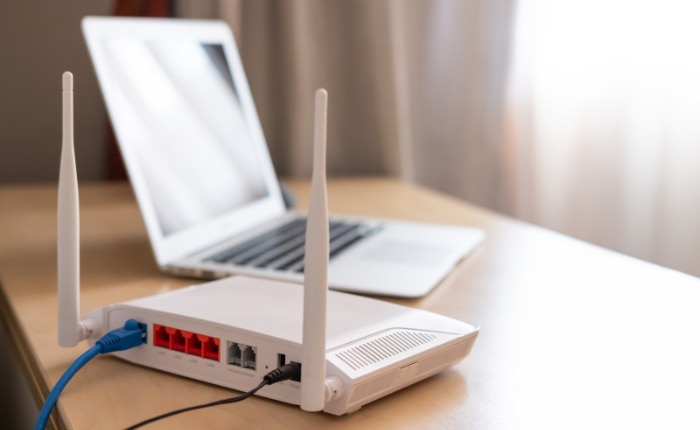What Is 1.1.1.1 DNS? Faster & Safer Web

Most internet users accept the default connection settings provided by their ISP without a second thought. However, a simple configuration change can significantly enhance your connection speed and keep your browsing habits private. 1.1.1.1 is a public DNS resolver service created by Cloudflare to address these exact issues.
It stands as a secure and high-performance alternative to the sluggish and often commercialized servers assigned by standard providers.
By switching to this service, you prevent third parties from monitoring your data while simultaneously enjoying a faster web experience.
The Role of a DNS Resolver
The internet functions through a complex series of connections that rely on precise translations to work correctly. Most users interact with browsers using memorable names for websites, but computers require specific numerical addresses to locate servers and deliver content.
This translation process occurs in the background every time you click a link or type a URL. The system responsible for this critical task often operates unnoticed, yet its performance directly impacts how quickly and privately you can access information online.
What Is DNS?
The Domain Name System, commonly referred to as DNS, serves as the directory for the internet. It connects human-readable domain names, like google.com, with machine-readable IP addresses, such as 142.250.190.46.
Without this system, users would need to memorize long strings of numbers to visit their favorite websites.
When you attempt to access a webpage, your computer sends a query to a DNS resolver. This resolver acts as an intermediary.
It takes the domain name you requested, locates the corresponding IP address from the authoritative servers on the internet, and returns that address to your device. Once your computer receives the IP address, it can connect to the web server and load the page.
The Default DNS Problem
Most internet users rely on the DNS server automatically assigned by their Internet Service Provider (ISP). While this setup requires no effort from the user, it often comes with significant downsides.
ISP-provided resolvers are frequently hosted on older hardware or inefficient networks, which can introduce latency and cause websites to load slowly.
Privacy presents an even greater concern with default resolvers. Because your ISP manages the DNS server, they have visibility into every domain you request.
This access allows them to build a comprehensive profile of your browsing habits. In many regions, ISPs can legally store this data and sell it to advertisers without your explicit consent.
They may also use these records to throttle connection speeds for specific types of traffic or hijack your search queries to display their own ads when you type in a non-existent domain.
How 1.1.1.1 Offers a Solution
1.1.1.1 enters the picture as a third-party recursive DNS resolver designed to replace the default ISP model. Cloudflare built this service to prioritize user interests rather than commercial data mining.
By switching your DNS settings to 1.1.1.1, you effectively bypass your ISP's resolver entirely.
This service handles your requests using a network optimized for low latency and high availability. Unlike a standard ISP that treats DNS as a secondary utility, Cloudflare treats it as a primary product focused on performance.
It processes the translation of domain names to IP addresses efficiently, sending the correct location back to your device without the lag associated with congested ISP servers.
Core Benefits: Speed and Privacy

Two primary factors drive users to switch their DNS settings: the desire for a faster connection and the need for better data protection. Cloudflare addressed both of these demands when architecting 1.1.1.1.
The service leverages a massive infrastructure to minimize the time it takes to find a website's address while simultaneously enforcing a policy that prevents the tracking of user behavior.
Boosting Browsing Speed
Speed in DNS resolution comes down to physical distance and network congestion. Cloudflare operates one of the largest networks in the world, with data centers located in hundreds of cities globally.
This extensive reach means that for most users, a 1.1.1.1 server is physically closer to them than their ISP's server.
When you click a link, the request travels a shorter distance to be resolved, resulting in a faster response. While the difference might be measured in milliseconds, these savings compound with every element on a webpage that needs to load.
Modern websites often generate dozens of DNS queries for images, scripts, and ads. By resolving these queries faster, 1.1.1.1 creates a snappier, more responsive browsing experience where pages start rendering almost instantly.
Protecting User Privacy
The business model of many DNS providers involves harvesting user data. 1.1.1.1 takes the opposite approach by committing to a privacy-first policy.
Cloudflare explicitly states that they do not sell user data to advertisers or use it to target ads.
To enforce this, the architecture of 1.1.1.1 is designed to limit data retention. The service does not write the querying IP address, the unique identifier of your home connection, to disk.
This means there is no permanent record linking your device to the websites you visit. Furthermore, Cloudflare wipes all transaction logs within a 24-hour period.
This ensures that even if a request were made to access the data, there would be no historical record of browsing activity to hand over.
Security Enhancements

While speed and privacy policies are important, technical security measures provide the actual barrier against surveillance. Standard DNS queries have historically been sent in plain text, leaving them vulnerable to interception.
1.1.1.1 supports modern encryption protocols that close these gaps, ensuring that the request itself remains unreadable to anyone watching the network traffic.
Encrypted DNS Queries
Traditional DNS traffic is unencrypted, meaning that anyone on the local network or the path to the ISP can see exactly which websites you are visiting. This vulnerability exists even if the website itself uses HTTPS.
To combat this, 1.1.1.1 supports two advanced security protocols: DNS over HTTPS (DoH) and DNS over TLS (DoT).
These protocols wrap your DNS queries in a layer of encryption. With DoH or DoT enabled, an observer monitoring your network can see that you are communicating with the 1.1.1.1 server, but they cannot see the content of that communication.
They cannot determine which website you are asking for. This prevents local snoops, malicious hackers at public Wi-Fi hotspots, and even your ISP from spying on your browsing destination.
Distinguishing 1.1.1.1 From a VPN
It is important to clarify the boundary between a secure DNS resolver and a Virtual Private Network (VPN). While both tools enhance privacy, they serve different functions. 1.1.1.1 secures the “lookup” phase of your connection.
It ensures that no one can see which address you are asking for and that the DNS provider is not logging that request.
However, 1.1.1.1 does not mask your IP address from the websites you visit, nor does it encrypt the actual data traffic once the connection is established. If you visit a website, that site still sees your home IP address and knows who you are.
A VPN, in contrast, tunnels all your traffic through a separate server, masking your identity from the destination website completely. For users seeking to hide their location or identity from the sites they browse, a VPN is the correct tool.
For users who simply want to prevent their ISP from tracking their history and want faster load times, 1.1.1.1 is the appropriate solution.
Practical Guide to Setting Up 1.1.1.1

Switching to Cloudflare’s DNS service is a straightforward process that does not require advanced technical skills or specialized software. The configuration involves changing a few numbers in the network settings of your device or router.
Once these settings are saved, the device will immediately stop using the ISP's default resolver and begin routing requests through the 1.1.1.1 network. This section outlines the specific steps to apply these changes to the most common operating systems and network hardware.
Configuring Individual Devices
Setting up the DNS resolver directly on a computer or smartphone allows that specific device to bypass ISP tracking, regardless of which Wi-Fi network it connects to. While the menus vary slightly between updates, the general path to these settings remains consistent across platforms.
Windows
- Open the Start menu and select Settings, then go to Network & Internet.
- Choose your connection type, such as Wi-Fi or Ethernet, and click on Change adapter options.
- Right-click your active connection and select Properties.
- Locate Internet Protocol Version 4 (TCP/IPv4) in the list, select it, and click Properties.
- Select the radio button labeled Use the following DNS server addresses.
- Enter 1.1.1.1 in the “Preferred DNS server” field and 1.0.0.1 in the “Alternate DNS server” field, then click OK.
macOS
- Open System Settings (or System Preferences) and select Network.
- Click on the network service you are using, such as Wi-Fi, and click Details or Advanced.
- Select the DNS tab.
- Use the + button at the bottom of the list to add a new server.
- Enter 1.1.1.1 and 1.0.0.1.
- If there are existing IP addresses listed from your ISP, you may need to remove them or ensure the Cloudflare addresses are at the top of the list.
- Click OK and then Apply.
iOS (iPhone/iPad)
- Go to Settings and tap on Wi-Fi.
- Find the network you are currently connected to and tap the blue ‘i' icon next to it.
- Scroll down to the DNS section and tap Configure DNS.
- Change the setting from Automatic to Manual.
- If there are existing entries, delete them.
- Tap Add Server and enter 1.1.1.1.
- Tap Add Server again and enter 1.0.0.1.
- Tap Save in the top right corner.
Android
Method 1: Private DNS (Recommended for Android 9 and newer)
This method protects all traffic (Wi-Fi and mobile data) and uses encryption.
- Open Settings and select Network & Internet (or Connections).
- Tap on Private DNS (you may need to expand an Advanced or More connection settings menu to find it).
- Select Private DNS provider hostname.
- Enter one.one.one.one (or 1dot1dot1dot1.cloudflare-dns.com) in the field.
- Tap Save.
Method 2: Static IP (For specific Wi-Fi networks)
This method only changes settings for a single Wi-Fi connection.
- Open Settings and select Wi-Fi.
- Tap the gear icon next to your current network or long-press the network name and select Modify network.
- Tap Advanced options.
- Locate IP settings and change it from DHCP to Static.
- Scroll down to the DNS fields.
- Enter 1.1.1.1 in the DNS 1 field and 1.0.0.1 in the DNS 2 field.
- Tap Save.
Router-Level Setup
Configuring the DNS resolver on your router is often the most efficient method for securing a home network. This approach automatically applies the benefits of 1.1.1.1 to every device connected to your Wi-Fi, including smart TVs, gaming consoles, and IoT devices that may not have accessible network settings.
To implement this, you must access your router's administration panel, usually found by typing 192.168.1.1 or 192.168.0.1 into a web browser. After logging in with your administrator credentials, look for a section labeled DNS, WAN, or Internet Settings.
You will see fields for Primary DNS and Secondary DNS. Replace the existing values with 1.1.1.1 and 1.0.0.1. After saving and rebooting the router, all traffic from your home network will automatically be routed through Cloudflare's servers.
1.1.1.1 for Families

While the standard 1.1.1.1 service focuses purely on speed and privacy, many users require additional layers of protection for their home environment. To address this, Cloudflare offers a variation of their service specifically designed to filter out harmful or inappropriate content at the source.
This solution is ideal for households looking to secure their network without installing restrictive software on every individual tablet or laptop.
Content Filtering Features
“1.1.1.1 for Families” operates on the same fast global network as the standard service but includes an automated filtering intelligence. When a device requests a website known to host malware or malicious software, the DNS resolver identifies the threat and refuses to resolve the address, effectively blocking the connection before it can be established.
For parents concerned about what their children might encounter online, this service offers an additional tier that blocks adult content. This filtering happens invisibly in the background.
It does not slow down the connection or require a subscription; it simply checks the requested domain against a categorized list of known adult or malicious sites and prevents the page from loading if a match is found.
Family DNS Addresses
To use these filtering features, you must enter different IP addresses than the standard ones mentioned in the previous section. Cloudflare categorizes these into two distinct levels of protection, allowing you to choose the balance that fits your needs.
For users who only want to block security threats, use the Malware Blocking Only configuration.
- Primary DNS: 1.1.1.2
- Secondary DNS: 1.0.0.2
For households that need comprehensive filtering for both security threats and adult content, use the Malware and Adult Content Blocking configuration.
- Primary DNS: 1.1.1.3
- Secondary DNS: 1.0.0.3
You can input these numbers into your router or individual devices using the same steps outlined in the setup guide. By using these specific addresses, you instruct the resolver to apply the relevant filters to your traffic automatically.
Conclusion
Taking control of your internet connection does not always require expensive hardware or complex software. 1.1.1.1 proves that a free service can fundamentally improve how you browse the web.
By replacing the default ISP resolver, users gain immediate access to a network built for speed and engineered for privacy. The addition of encrypted queries ensures that browsing habits remain confidential, effectively closing the loopholes that third parties use to monitor online activity.
The internet works best when performance and privacy are the standard rather than the exception. Configuring these settings is one of the most effective ways to reclaim ownership of your data.
Whether applied to a single smartphone or an entire home network, 1.1.1.1 serves as a robust defense against surveillance and a reliable engine for a faster, more responsive online experience.


